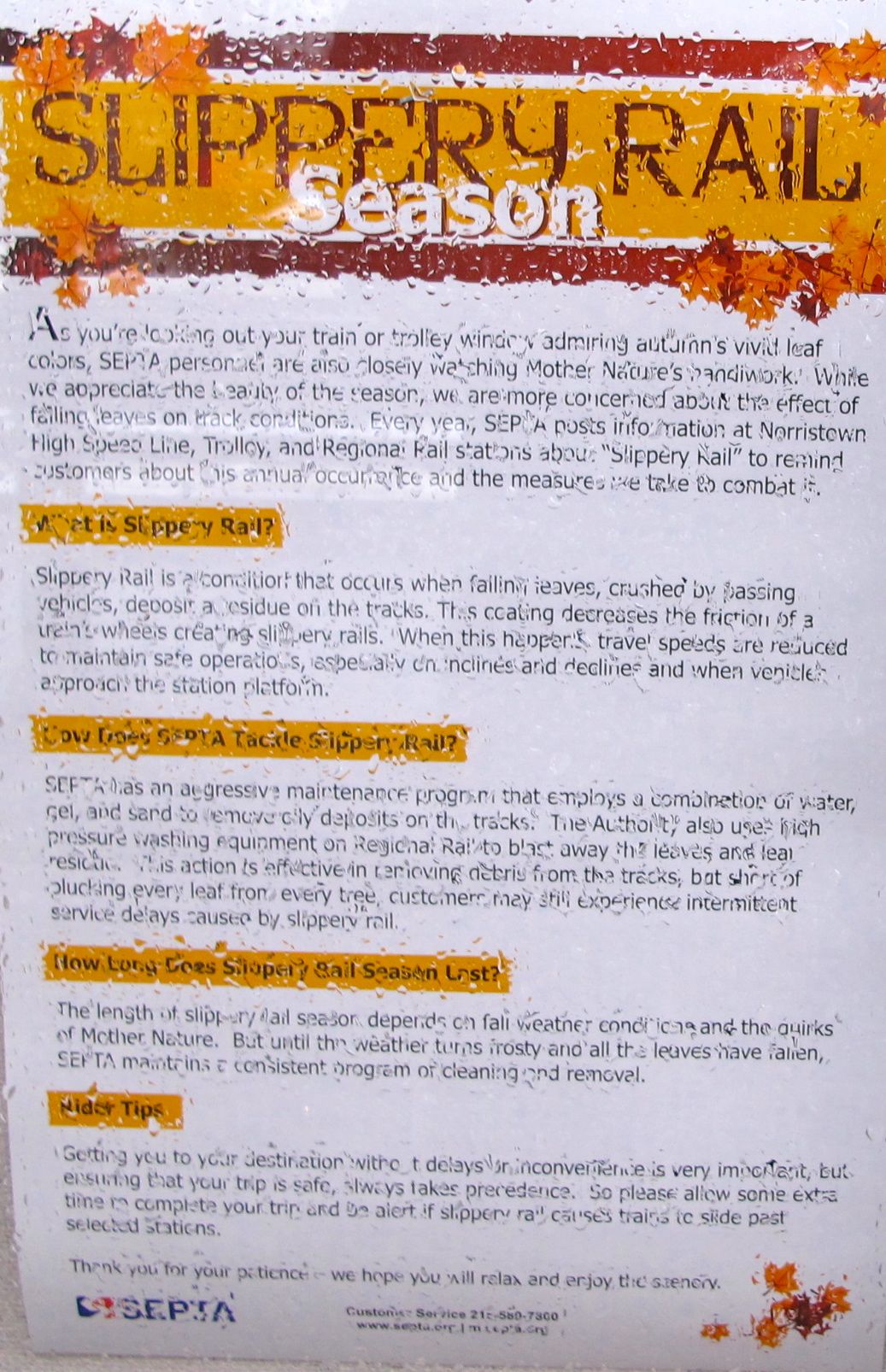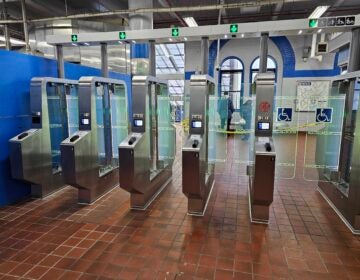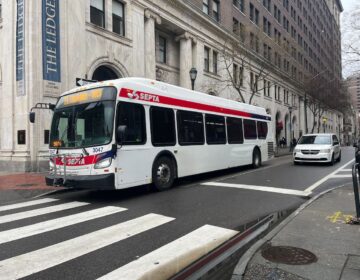SEPTA will monitor “slippery rails” through December
As rain and snow showers hit Philadelphia this week, SEPTA is only about two-thirds through its “slippery rail” fall season, but it is already gearing up for winter weather conditions.
Slippery rail season is the term SEPTA uses for the fall months when leaves fall from trees and land on regional rail, trolley and the Norristown High Speed Line train tracks leaving behind a slick residue.
To avoid safety hazards posed by the slippery leaf residue, SEPTA monitors the tracks and sends crews to pressure wash the rails with a mixture of water, gel and sand. This clears leaves from the tracks and prevents any residue from building up or causing hazardous conditions.
“The potential safety issue you have is you’re losing that friction that essentially keeps the rails connected to the wheels of the train,” said SEPTA spokesperson Andrew Busch.
By clearing the tracks and slowing the speed of at-risk trains, SEPTA has prevented having any slippery rail induced incidents, and Busch said SEPTA has not had too many delays due to slick rail conditions this fall.
Winter weather
SEPTA will continue monitoring the tracks through most of December, when it typically begins its winter weather action plan.
“For the most part right as slippery rail season ends we get into winter weather, though we’ve had a little bit of an overlap this year,” Busch said.
As the seasons transition from fall to winter, SEPTA will begin to monitor individual storms more so than constantly monitor track conditions the way it does during slippery rail season.
Busch said as winter storms approach SEPTA asks, “Is it going to be something that will potentially cause us to shut down some of our services, or is it going to be more of a nuisance kind of storm?”
During winter months, SEPTA pre-salts concrete areas where passengers walk to and from or board transit – though as PlanPhilly has reported this does not always happen right away.
SEPTA also tries to give passengers as much advanced notice of service delays or shutdowns, Busch said.
Regional rail typically shuts down first because snow can get compacted under the trains and cause traction motors to quit. SEPTA often shuts service down to prevent trains from getting stranded mid-route due to the failed motors.
Busch said there is no one line that is more prone to shut downs but that, “It depends on physically where the storm is because the regional rail system is so spread out… It’s essentially wherever the weather is worst, that’s were we’re going to have the most problems with regional rail.”
To deal with snow and ice, SEPTA has a combination of equipment, like ice cutters and blowers, sand and pilot trains, which run at night to keep tracks and overhead catenary wires from freezing.
The catenary wires are a particular concern because snow and ice can actually cause them to fall in inclement weather.
Busch said during the colder months, the Broad Street Line and Market Frankford Line are the system’s “workhorse lines” because they are largely covered and require less winter weather concern.
All of these slippery rail and winter weather related measures are accounted for in SEPTA’s annual operating budget, and Busch said SEPTA does not usually have a problem with costs exceeding the budget.
Extreme weather
There are of course extreme weather incidents like Hurricane Sandy, which has leaders across the country concerned whether or not the nation’s transportation systems are ready for increasingly severe weather.
The hurricane cost SEPTA $550,000 in unexpected costs such as repairs and unexpected overtime, but Busch said you do not have to look far to see that SEPTA is fortunate that these costs were so low compared to those incurred by transit agencies in New York City and New Jersey.
With intense but less predictable weather like Hurricane Sandy, Busch said, “Our best way to deal with that is to have all hands on deck and be ready to respond to whatever it brings.”
SEPTA will continue to notify passengers of delays or service disruptions due to weather on its website, twitter account and through the media. Busch encourages passengers, particularly on regional rail, to provide additional travel time and check for service updates.
Contact the reporter at cfisher@planphilly.com
WHYY is your source for fact-based, in-depth journalism and information. As a nonprofit organization, we rely on financial support from readers like you. Please give today.








